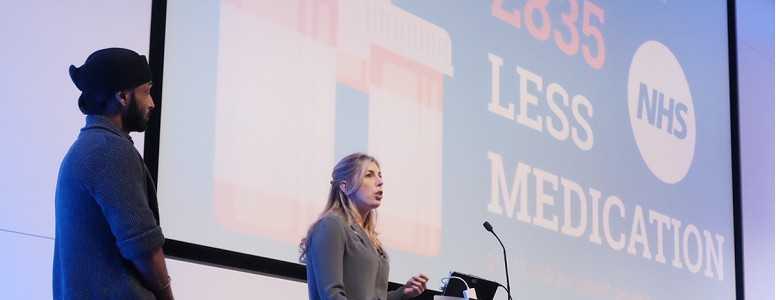The Public Health Collaboration (PHC) celebrated its fourth annual conference this past weekend and second held at the Royal College of General Practitioners in London.
Launched by Sam Feltham, the PHC is dedicated to informing and implementing healthy decisions for better public health. A key theme of the conference was the need for independent, robust research into nutrition and a call for change to the current dietary guidelines to tackle the rise of metabolic diseases.
Cardiologist Dr Aseem Malhotra provided the opening remarks by discussing how evidence-based medicine has been ‘hijacked’. He put forward that shared decision making was central to good patient care and that doctor-patient communication needs to be transparent, so patients are able to make informed decisions regarding their treatment.
Professor Robert Lustig, a paediatric endocrinologist called for the end of the term ‘obesity epidemic’, demonstrating how obesity was a marker of disease rather than cause and highlighted how people can be both obese and metabolically healthy. The blame was shifted to non-alcoholic fatty liver (NAFL) being the primary driver behind disease.
One of the most anticipated talks of the weekend was by Labour’s deputy leader Tom Watso, who in 2018 had announced that he had placed his type 2 diabetes into remission after overhauling his lifestyle and adopting a real food approach. Mr Watson was first interviewed on his personal experience by Dr Malhotra before the discussion was opened to the audience, eager to question how he was going to help change current dietary guidelines.
Leading obesity researcher Dr Zoe Harcombe, PhD, presented a talk on fibre, which has been a hot topic after a recent study claimed that it would be difficult to meet the recommended targets for fibre intake while following a low carb diet. In her talk, she explored the origins behind the claim that fibre is essential for better health and demonstrated that there is limited evidence for the current recommendations.
Dr. Ian Lake, a GP who has lived with type 1 diabetes for 23 years, discussed how it was time to rethink dietary approaches and called for more testing of insulin resistance in type 1 diabetes. He also spoke about how Diabetes Digital Media’s upcoming Type 1 Program would help individuals gain strong control over their type 1 diabetes.
The one-year outcomes from the Low Carb Program were presented by Diabetes Digital Media’s Chief Operating Officer Charlotte Summers (pictured, right) and Chief Executive Officer, Arjun Panesar (pictured, left). The findings show an average weight loss of 7.4kg since joining the Low Carb Program and that one in four people have achieved remission. They also reflected on the success of the past year, including the announcement that the Low Carb Program app has been accepted into the NHS apps library.





